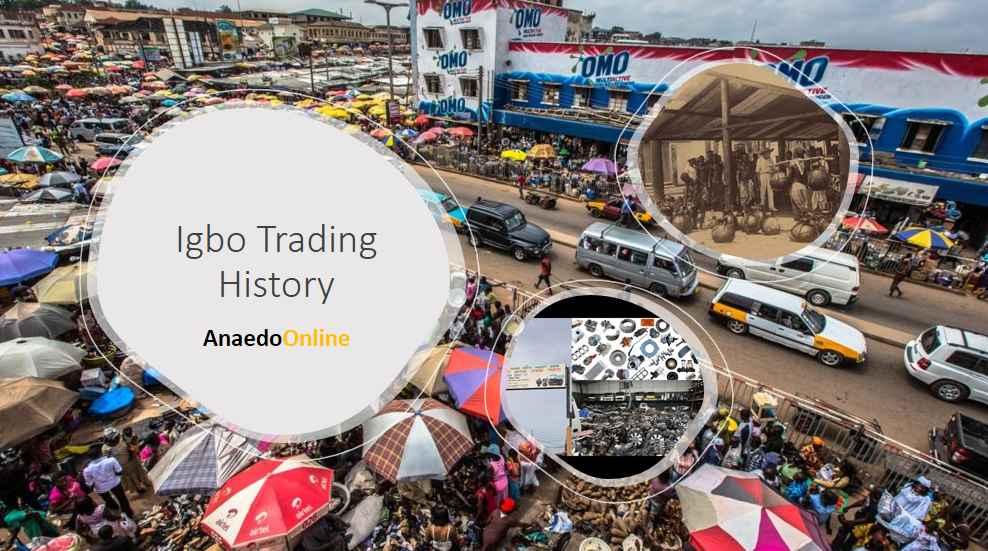The Rich Trading History of the Igbo People: Exploring their Economic Influence
The Igbo people have a rich history of trade and commerce that has significantly influenced their cultural identity and economic standing, not only in Nigeria but also beyond its borders. Their trade practices date back to ancient times when they established complex networks of exchange and barter, which laid a solid foundation for their enduring success in trade.
Origins of Igbo Trading:
The Igbo community thrived on their entrepreneurial spirit and ingenious methods of trade. From bartering to sophisticated market systems, their ability to adapt and innovate contributed greatly to their success. Marketplaces and fairs served as bustling centers of commerce and social interaction, where individuals from various tribes and regions gathered to exchange goods, ideas, and stories. These vibrant hubs not only facilitated economic transactions but also fostered a sense of community cohesion and cultural exchange. Among the unique aspects of Igbo trade was the use of the manilla bracelet (ego igwe) and cowries (ego ayoro), a traditional currency with distinctive value and significance.
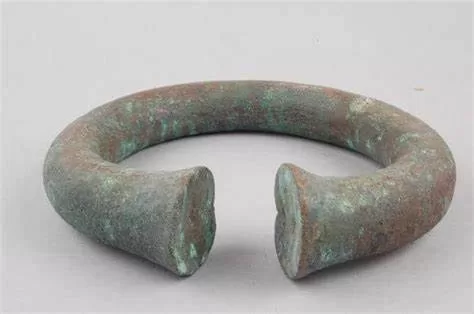
The ‘Ego Igwe’: Traditional Currency of the Igbo People Used in Trade During Ancient Times
The Igbo people’s trading heritage is deeply rooted in their historical background, reflecting a long-standing tradition of entrepreneurship and economic prowess. Dating back centuries, the Igbo community embraced trade as a means of sustenance and growth. Their engagement in commerce can be attributed to various factors, including their favorable geographical location, abundant resources, and cultural practices. Situated in southeastern Nigeria, the Igbo homeland enjoyed proximity to key trade routes, allowing them to establish connections with neighboring communities and regions. This advantageous positioning facilitated the exchange of goods and services, fostering a culture of commerce among the Igbo.
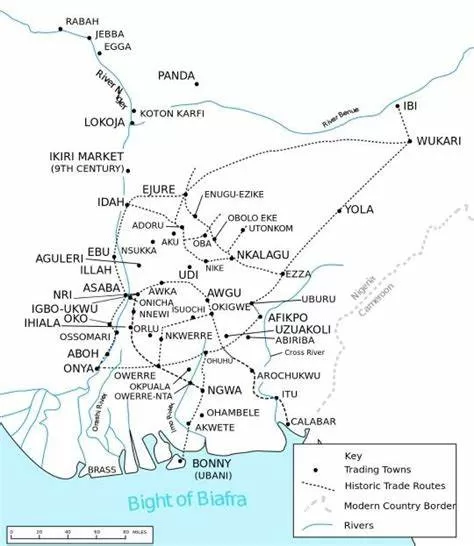
Map depicting Igbo Trading Routes Prior to 1900, showcasing the extensive networks of commerce and exchange that characterized the region’s economic activity.
Throughout history, the Igbo people’s trading activities have evolved, adapting to changing times and market demands. In the pre-colonial era, their trade networks extended beyond the region, reaching as far as North Africa and Europe. The Transatlantic Slave Trade introduced a new dimension to their commerce, as captives were exchanged for goods such as guns, textiles, and alcohol. Their adaptability and resilience manifested in the development of unique currency systems, employing trade tokens and cowrie shells as mediums of exchange.
With the abolition of the slave trade and the arrival of European colonial powers, the Igbo people adapted their trading practices to the new economic realities. They diversified into sectors such as palm produce and textile manufacturing, establishing a reputation for high-quality products. Today, the Igbo people continue to play a significant role in Nigerian and global trade, with notable contributions in areas such as agriculture, manufacturing, and entrepreneurship.
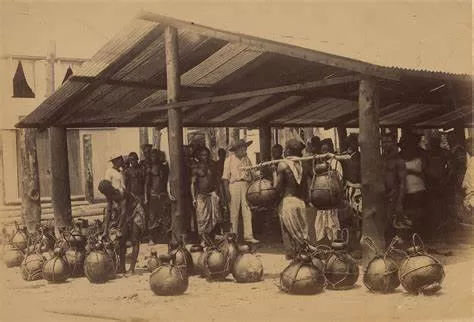
Igbo Merchants Engaged in Palm Oil Trade Following the Abolition of the Slave Trade, showcasing their resilience and adaptation to changing economic circumstances.
The term “ego” (money) became more prominent with the introduction of coin and paper money, marking a transformative period in the Igbo people’s economic history. Tracing the roots of Igbo trading and currency unveils a captivating journey of adaptability, resilience, and resourcefulness, showcasing their entrepreneurial heritage.
Trade Flourishes Amidst Fertile Lands: Geographical Advantage of Igbo Homeland
A pivotal factor in the prosperity of Igbo trade lies in their strategic geographical location. Nestled in the southeastern part of Nigeria, the Igbo people enjoy fertile land, abundant natural resources, and access to diverse trade routes. This geographical advantage facilitated their active participation in both local and long-distance trade.

The Fertile Lands and Abundant Natural Resources of Igbo Land Positioned Them as an Economic Powerhouse, facilitating trade and commerce across the region.
Locally, vibrant marketplaces, known as “Amaahia” annexed by the British to “Umuahia around the mid-to-late 19th century, or “Nkwo,” emerged as economic hubs where Igbo communities thrived. These markets buzzed with entrepreneurial spirit as goods and services, ranging from agricultural produce to crafts and livestock, exchanged hands.
The expansion of Igbo trade networks transcended national borders, extending influence into neighboring regions like present-day Cameroon, Equatorial Guinea, and parts of West Africa. Historical records document Igbo traders venturing beyond, accessing new markets, and establishing valuable connections with diverse ethnic groups.
Caribbean and Congo Chronicles: Igbo Traders’ 19th Century Odyssey
During the transatlantic slave trade, countless Igbo individuals faced the harrowing ordeal of forced displacement to the Americas. Notably, in Jamaica, the Igbo community exhibited exceptional resilience, preserving integral aspects of their cultural heritage, including language, religious rituals, and culinary practices. Descendants, now known as the Jamaican Maroons, proudly carry forward a robust Igbo identity. Significantly, many Igbo individuals played crucial roles as intermediaries and brokers during this period, showcasing their proactive engagement in trade and commerce.
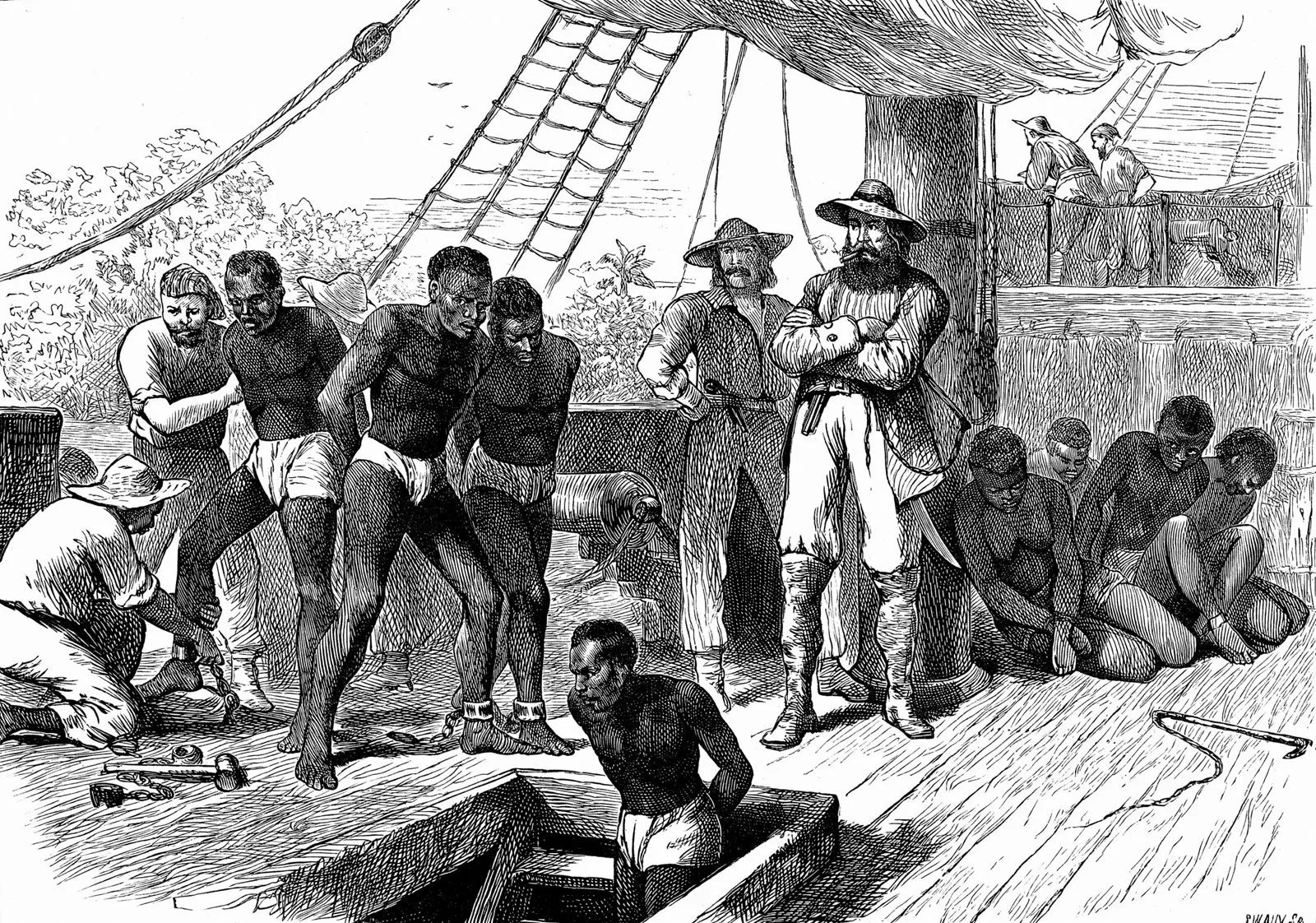
The Transatlantic Slave Trade of the Igbo People Through the Middle Passage, depicting the harrowing journey endured by countless individuals and the profound impact on Igbo communities and culture.
Similarly, historical records recount Igbo migrations to the Congo region in the 19th century, primarily motivated by the pursuit of economic opportunities. Termed “Ohu,” Igbo traders established settlements in the Congo Basin, engaging in trade with local populations and European merchants.
These migratory patterns across diverse regions, from Jamaica to the Congo, underscore the resilience and adaptability of the Igbo people. Despite confronting myriad challenges, they succeeded in preserving their cultural traditions and contributing significantly to the economic development of the areas they inhabited.
The Igbo trading history unveils a narrative of entrepreneurial prowess, cultural vibrancy, and substantial contributions to both regional and international trade.
SMEDAN Trains Teachers On Entrepreneurship Skills For Economic Enhancement In Imo
Contemporary Igbo Trade:
In the realm of modern trading practices, one notable example of Igbo entrepreneurial success is the emergence of the Nkwo Nnewi Auto Spare Parts Market in Nigeria. This bustling market has gained recognition as a hub for the automotive industry, showcasing the Igbo people’s ability to transform a local trade into a thriving economic force. It stands as one of the largest auto spare parts markets in the world and serves not only as a major supplier of automobile spare parts but also as a source of employment for thousands of individuals.
The market’s growth reflects the Igbo traders’ deep understanding of market demands and their commitment to delivering quality products at competitive prices. Beyond the automotive sector, the Igbo people’s involvement in other thriving markets further highlights their economic influence. Similar markets, such as the Onitsha Main Market, Ariaria International Market in Aba, and Alaba International Market in Lagos, are known for their vast selection of goods ranging from textiles, electronics, and household items to foodstuffs. These markets serve as vital trade nodes, attracting both local and international customers, and providing a platform for Igbo traders to showcase their business acumen and foster economic growth.
The influence of Igbo traders extends beyond Nigeria’s borders, as they actively engage in import-export businesses across the African continent. Through their established networks and entrepreneurial expertise, Igbo traders have been instrumental in promoting regional trade integration. Their involvement in the importation of goods from various countries and subsequent distribution within Nigeria and neighboring countries bolsters economic relationships and facilitates cross-border commerce.
The continued success of Igbo traders in various sectors underscores their significant contribution to Nigeria’s economic development. By generating employment opportunities, driving innovation, and stimulating commerce, Igbo entrepreneurs play a crucial role in building vibrant local economies. Moreover, their activities have a broader impact on the African continent, fostering regional economic growth, and reinforcing Nigeria’s position as a key player in the African marketplace.
The entrepreneurial echoes of the Igbo people resonate through the emergence of markets like the Nkwo Nnewi Auto Spare Parts Market and others alike. Their ability to adapt to changing market dynamics, their dedication to providing quality products, and their commitment to fostering economic development make them exemplary figures in the world of trade and entrepreneurship. As they continue to thrive and expand their reach, the Igbo people’s impact on the contemporary trade landscape remains undeniable.
Notable Igbo Traders and Success Stories:
Within the rich Igbo entrepreneurial history, notable figures emerged as beacons of success, leaving an indelible mark on the landscape of business.
Chief Innocent Chukwuma: Driving Automotive Triumphs
Chief Innocent Chukwuma, the visionary founder of the Innoson Vehicle Manufacturing Company, epitomizes the tenacity and determination embedded in Igbo entrepreneurship. His journey from a humble motorcycle spare parts trader to establishing Nigeria’s largest indigenous automobile manufacturing plant stands as a testament to the indomitable spirit of Igbo innovation.
Professor Ndubuisi Ekekwe: Bridging Socio-economic Gaps through the IAS
Professor Ndubuisi Ekekwe’s groundbreaking work on the Igbo Apprenticeship System (IAS) has garnered international acclaim. His efforts to bridge the socio-economic divide through the IAS underscore the impactful role of Igbo business acumen, showcasing a compelling narrative of triumph over adversity.
Chief Chika Okafor (Chicason): A Trailblazer in Energy and Beyond
Chief Chika Okafor, widely known as Chicason, has left an indelible mark on the oil and gas industry. His conglomerate, Chicason Group, not only flourishes in energy but also makes significant strides in manufacturing, real estate, and agriculture.
Engr. Gilbert Obiajulu Uzodike: Illuminating Nigeria’s Infrastructure with Cutix Cables
In the realm of manufacturing, the iconic story of Cutix Cables, founded by Engr. Gilbert Obiajulu Uzodike takes center stage. The company has become a leading name in the production of electrical cables, contributing immensely to Nigeria’s infrastructure development.
Louis Ojukwu: Pioneering Nigeria’s Financial Markets
Louis Ojukwu, the pioneering founder of the Nigerian Stock Exchange (NSE), laid the foundation for Nigeria’s financial markets, showcasing the Igbo knack for venturing into uncharted territories.
Cosmas Maduka: Diversified Excellence with Coscharis Group
The success narrative extends to Cosmas Maduka, the dynamic force behind Coscharis Group. His diversified business empire spans automotive, agriculture, real estate, and healthcare, highlighting the versatility of Igbo entrepreneurial prowess.
These entrepreneurial beacons, with their unique journeys, not only enrich the historical significance of Igbo entrepreneurship but also leave an enduring impact on the contemporary business landscape.
Trading and Cultural Significance among the Igbo People:
The art of trading within the Igbo community extends far beyond economic transactions; it is deeply embedded in their cultural fabric, reflecting a set of values and beliefs that have shaped their approach to commerce. For the Igbo people, trade is not merely a transaction but a communal endeavor that carries the weight of tradition and shared identity. Rooted in their historical background, the Igbo’s commitment to trade is a testament to their resilience, adaptability, and entrepreneurial spirit. The values of trust, integrity, and fairness underscore their trading practices, fostering a sense of community cohesion and mutual respect. Furthermore, trading catalyzes social mobility, offering individuals the opportunity to enhance their economic standing and contribute to the development of their communities. In the intricate tapestry of Igbo cultural identity, trade is a vibrant thread that weaves together the past, present, and future, ensuring the preservation of their rich heritage.
The Igbo Apprenticeship System:
At the heart of their approach to commerce is the Igbo Apprenticeship System (IAS), a communal framework that exemplifies the values and beliefs underpinning their trading heritage. This system, practiced for centuries, embodies the Igbo spirit of community and economic empowerment. The IAS operates on principles of mentorship, where successful businesses provide capital and guidance to budding entrepreneurs, fostering a sense of collective progress. Trust and integrity, integral to Igbo trading values, are ingrained in the apprentice-master relationship.
As apprentices learn the nuances of their trade, they not only gain valuable skills but also contribute to the economic development of their communities. The IAS, with its emphasis on skill transfer and communal advancement, exemplifies how trading contributes to social mobility and community development among the Igbo people. It serves as a living testament to the enduring cultural identity and entrepreneurial spirit that define Igbo trade, creating a legacy that transcends generations. As we explore the cultural significance of trading, the Igbo Apprenticeship System stands as a shining example of how commerce intertwines with community, preserving tradition while propelling the Igbo people towards a prosperous future.
Challenges and Future Prospects:
In the Igbo trading history, the narrative extends beyond the triumphs of the past to the challenges and prospects that shape the contemporary landscape for Igbo traders. A crucial facet of this journey involves confronting challenges head-on, where infrastructure limitations emerge as a formidable obstacle. Inadequate infrastructure can impede the smooth flow of goods and services, affecting the efficiency of trade operations. Additionally, government policies, if not conducive, can pose substantial barriers to entrepreneurial endeavors.
However, amidst these challenges, a narrative of resilience and adaptability unfolds. Igbo traders, drawing from a rich legacy of overcoming adversity, navigate these obstacles with a determination to succeed. Their entrepreneurial spirit and ability to adapt to changing circumstances position them not merely as survivors but as drivers of innovation in the global market.
Looking towards the horizon, there exists a realm of promising prospects for Igbo traders. The global market offers expansive opportunities for growth and expansion, beckoning entrepreneurs to explore new frontiers. The agility and resourcefulness ingrained in Igbo traders enable them to seize these opportunities, contributing not only to their success but also to the broader economic landscape.
Amidst these dynamics, initiatives play a pivotal role in shaping the future trajectory of Igbo trading. Strategic interventions, whether focused on improving infrastructure or advocating for favorable policies, become instrumental in addressing existing challenges. Furthermore, these initiatives contribute to the sustainable economic development of the Igbo community, fostering a thriving ecosystem for entrepreneurs.
Final Thought: Piecing Together the Ageless Heritage of Igbo Trading Expertise
We are drawn into a tale of tenacity, flexibility, and commercial genius as we explore the lengthy history of Igbo trade. Igbo trading has its roots in a bygone era when it was more than just a means of exchange; it was a way of life. Tucked away in the rich plains of southeast Nigeria, the Igbo people placed themselves strategically along trade routes, creating cross-border relationships. When one considers how their currency changed over time—from “okpogho” and “ego ayoro” to adopting foreign coinage—it becomes evident that the Igbo people not only accepted change but flourished in it.
The lively umuahia and nkwo marketplaces, where goods and stories mingled to create a dynamic economic landscape, are alive with the entrepreneurial echoes of the Igbo people. Igbo commercial skills grew despite challenges like the Transatlantic Slave Trade and Colonial assaults. Igbo traders continue to play a major role in the economic fabric of Nigeria, and the echoes of their historic voyage may still be heard in the modern global trade arena.
Recognizing the Igbo people’s enduring legacy is essential as we wrap up this investigation. Their ability to trade, which is essential to their identity, has been incorporated into Nigeria’s economy. Their enterprising spirit lives on in industries like manufacturing, entrepreneurship, and agriculture, which drives the expansion of the country. With a positive outlook, we anticipate the continued impact of Igbo traders, their steadfast commitment to economic excellence, and the boundless potential for future growth.
AnaedoOnline
Post Disclaimer
The opinions, beliefs and viewpoints expressed by the author and forum participants on this website do not necessarily reflect the opinions, beliefs and viewpoints of Anaedo Online or official policies of the Anaedo Online.

